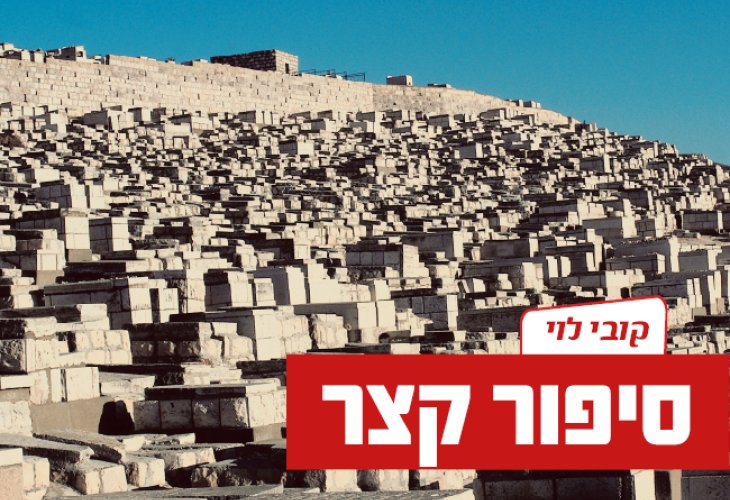Torah Personalities
Joshua ben Nun: The Warrior-Leader Who Brought Israel Into the Promised Land
His life, miracles, Torah legacy, and the stories that shaped the nation
 Joshua Son of Nun (Photo: shutterstock)
Joshua Son of Nun (Photo: shutterstock)The 26th of Nisan, is the yahrzeit (anniversary of passing) of Yehoshua ben Nun (Joshua), the leader of the Jewish people after the death of Moshe, during the conquest and settlement of the Land of Israel.
Yehoshua was both the attendant and disciple of Moshe. When Moshe ascended Mount Sinai to receive the Tablets, Yehoshua accompanied him part of the way.
The Midrash states: “Yehoshua served Moshe day and night. Therefore, God honored him… and because he served his master, he merited the spirit of prophecy.”
Love of Torah
The Talmud (Menachot 99b) describes Yehoshua’s affection for Torah: “God said to Yehoshua: ‘Since the words of Torah are so beloved to you, this Book of the Torah shall not depart from your mouth.’”
The Transmission of Tradition
In Pirkei Avot we learn that Moshe transmitted the Torah to Yehoshua, and Yehoshua to the Elders. The Talmud (Shekalim 2:7) adds: “When Yehoshua sat and taught, everyone knew the Torah was truly Moshe's Torah.”
Early Appearances in the Torah
Yehoshua first appears during the battle against Amalek in Rephidim, which he led. He later served as one of the twelve spies, together with Calev. At that time, Moshe added the letter yud to his name — changing Hoshea to Yehoshua.
Moshe's Prayer for Yehoshua
When renaming him, Moshe prayed: “May God save you from the counsel of the spies.” Calev, similarly, went to Chevron to pray at the graves of the Patriarchs. Indeed, only Yehoshua and Calev refrained from speaking ill of the Land and were spared the punishment.
The Yud of Sarah and the Name of Yehoshua
Midrash Rabbah teaches that the yud removed from Sarah’s name (“Sarai” → “Sarah”) appeared before God and said: “Master of the universe, You removed me from the name of that righteous woman.”
God replied: “Until now you were at the end of a woman’s name; now I will place you at the beginning of a man’s name” — and gave it to Yehoshua.
Yehoshua Leads the Conquest of the Land
After Moshe's death, Yehoshua led Israel into Canaan and directed the conquest:
Jericho
Ai
The five kings at Makkedah
Libnah, Lachish, Eglon, Hebron, Debir
As far as Kadesh-Barnea in the south, Gaza in the west, and Hazor in the north.
Rachav Converts and Marries Yehoshua
The Talmud teaches that Rachav converted, married Yehoshua, and that eight prophet-priests descended from her.
Yehoshua the Author
Yehoshua wrote the Book of Yehoshua. Some sages say he also wrote the final eight verses of Devarim describing Moshe's death.
Others say Moshe wrote them himself in tears, word by word, as God dictated.
The Book of Yehoshua is the first of the Nevi’im Rishonim (Former Prophets), which recount the history of Israel in the Land, containing 24 chapters.
The book can be divided into:
Part I: Events after Moshe's death and the conquest (Chs. 1–12)
Part II: Division of the land among the tribes (Chs. 13–21)
Appendices: The Transjordan tribes, Yehoshua’s farewell speech, and Yehoshua’s death (Chs. 22–24)
The Talmud (Nedarim 22b) teaches: “Had Israel not sinned, they would have needed only the Five Books of Moshe and the Book of Yehoshua.”
Miracles
Many miracles occurred under Yehoshua's leadership:
The Jordan River split
The walls of Jericho fell after shofar blasts
Hailstones struck Israel’s enemies
The sun and moon stood still at Yehoshua's command
Midrash Sifrei states that Yehoshua “subdued kings and rulers from one end of the world to the other.”
Liturgical Contributions
Yehoshua established:
The blessing over the land in Birkat HaMazon (“Nodeh Lecha”)
The prayer “Aleinu L’Shabeach” after the fall of Yericho
Yehoshua’s Death
Yehoshua died at age 110. The sages ask: Why not 120, like Moshe?
They explain: Yehoshua delayed in defeating the 31 kings, fearing, “If I finish my mission, I will die as Moshe did.”
God responded: “Because you prolonged the war, I will shorten your years by ten.”
As Proverbs teaches: “Many are the plans in a person’s heart, but the counsel of God — only that will stand.”
No single leader replaced Yehoshua. The nation was led first by the Elders and then by the Judges.
The Tomb of Yehoshua
Yehoshua’s tomb is located in the Arab village of Kifl Hares, about 1 km northwest of Ariel. It is identified with biblical Timnat-Herez, his burial site. Nearby is the tomb attributed to his father, Nun. Jews visit the site on Yehoshua's yahrzeit, the 26th of Nisan.
May his merit protect us.

